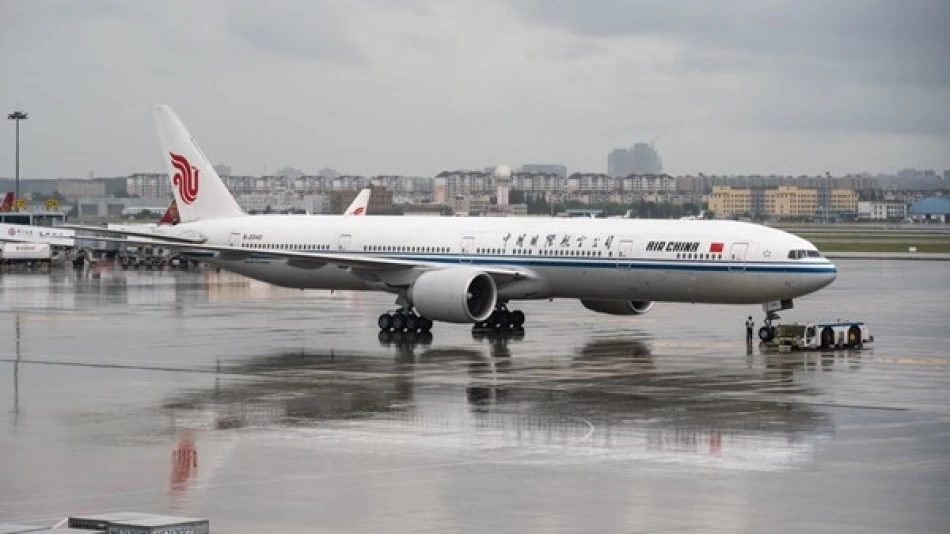
Emergency Landing of Chinese Plane in Russia: Navigational Challenges Prompt Safe Touchdown
Air China Boeing 777 Makes Emergency Landing in Siberia After Engine Failure
An Air China Boeing 777 carrying 265 passengers and crew made a successful emergency landing in the remote Siberian city of Nizhnevartovsk on Tuesday after suffering an engine failure during its London-to-Beijing route. The incident highlights the critical importance of Russian airspace for Asian carriers maintaining European connections, even as geopolitical tensions reshape global aviation routes.
Swift Response Prevents Disaster
The aircraft, operating on a single functioning engine, touched down safely at Nizhnevartovsk Airport after pilots declared an emergency mid-flight. According to Russian state news agency TASS, all 250 passengers and 15 crew members aboard flight were unharmed in what aviation experts would classify as a textbook emergency response.
Russian Telegram channel Baza reported that pilots selected Nizhnevartovsk specifically for its extended runway length and favorable weather conditions—crucial factors when landing a wide-body aircraft operating on reduced power. The city sits approximately 2,300 kilometers east of Moscow and 3,500 kilometers from the flight's intended destination in Beijing.
Russian Airspace Remains Aviation Lifeline
The incident underscores Russia's continued role as the shortest aerial corridor connecting Europe and East Asia, despite ongoing international sanctions and airspace restrictions affecting many Western carriers. For Chinese airlines like Air China, maintaining access to Russian airspace provides a significant competitive advantage in flight times and fuel efficiency compared to alternative southern routes.
Strategic Importance for Asian Carriers
While European and North American airlines have largely avoided Russian airspace since 2022, Asian carriers—particularly those from China—continue to benefit from these direct routing options. This geographical advantage translates into shorter flight times, reduced fuel costs, and more competitive scheduling for trans-continental services.
Boeing 777 Safety Record Under Scrutiny
The emergency landing adds another data point to ongoing discussions about wide-body aircraft reliability on long-haul routes. The Boeing 777, while generally considered one of aviation's safest aircraft, has faced increased scrutiny following various technical incidents across different operators globally.
Rosaviatsia, Russia's aviation authority, confirmed that Air China would dispatch a replacement aircraft to transport stranded passengers to their final destination. This standard procedure typically involves either ferrying a spare aircraft from the airline's hub or repositioning equipment from nearby stations.
Market Implications for Aviation Industry
For investors and industry analysts, incidents like these highlight the operational complexities facing international carriers navigating both technical challenges and geopolitical constraints. Chinese airlines' continued access to Russian airspace represents a structural advantage that could influence market share dynamics on Europe-Asia routes over the medium term.
The successful emergency response also demonstrates the resilience of international aviation cooperation, even amid broader diplomatic tensions, as safety protocols and emergency procedures continue to function effectively across national boundaries.
Most Viewed News

 Layla Al Mansoori
Layla Al Mansoori






